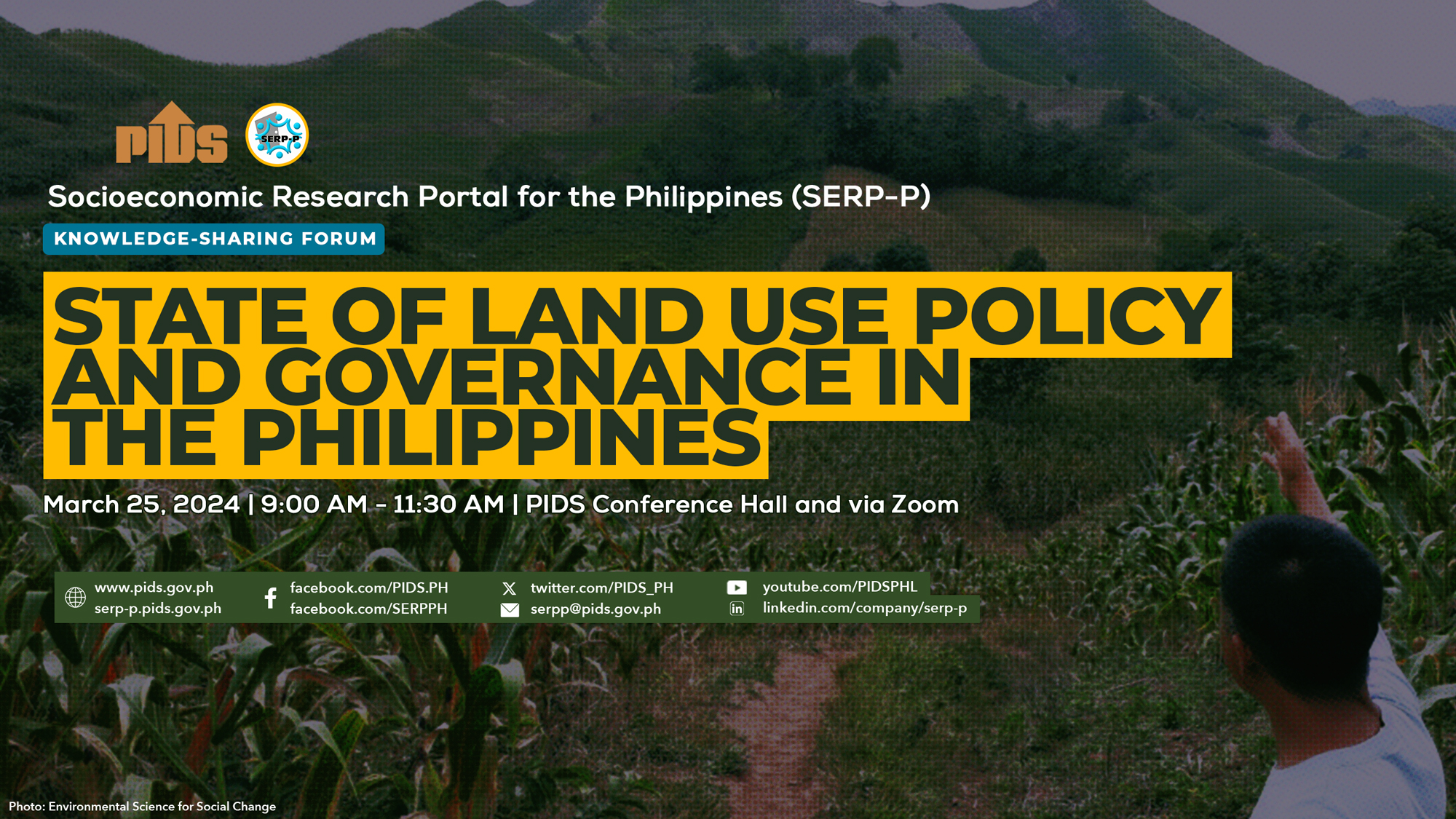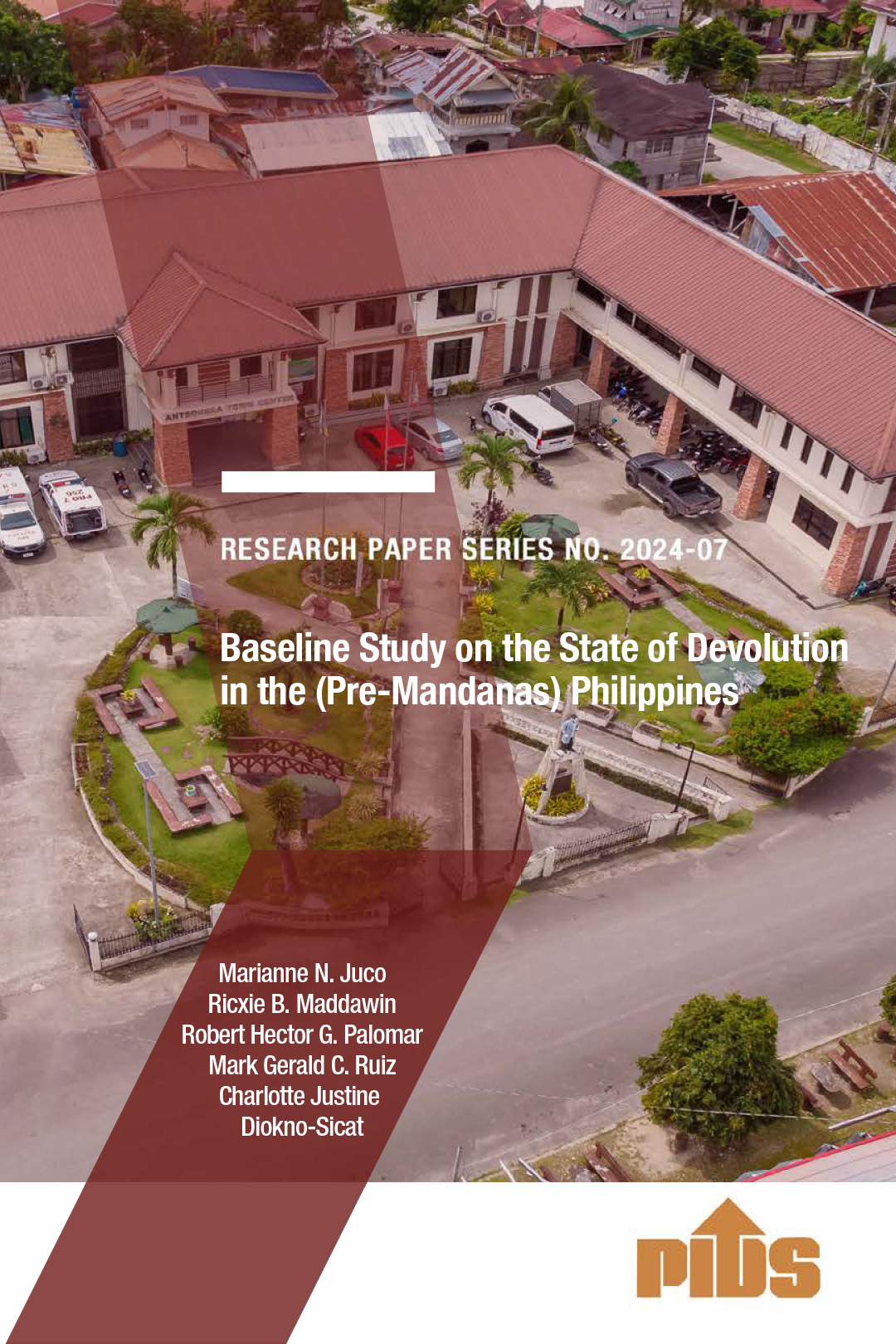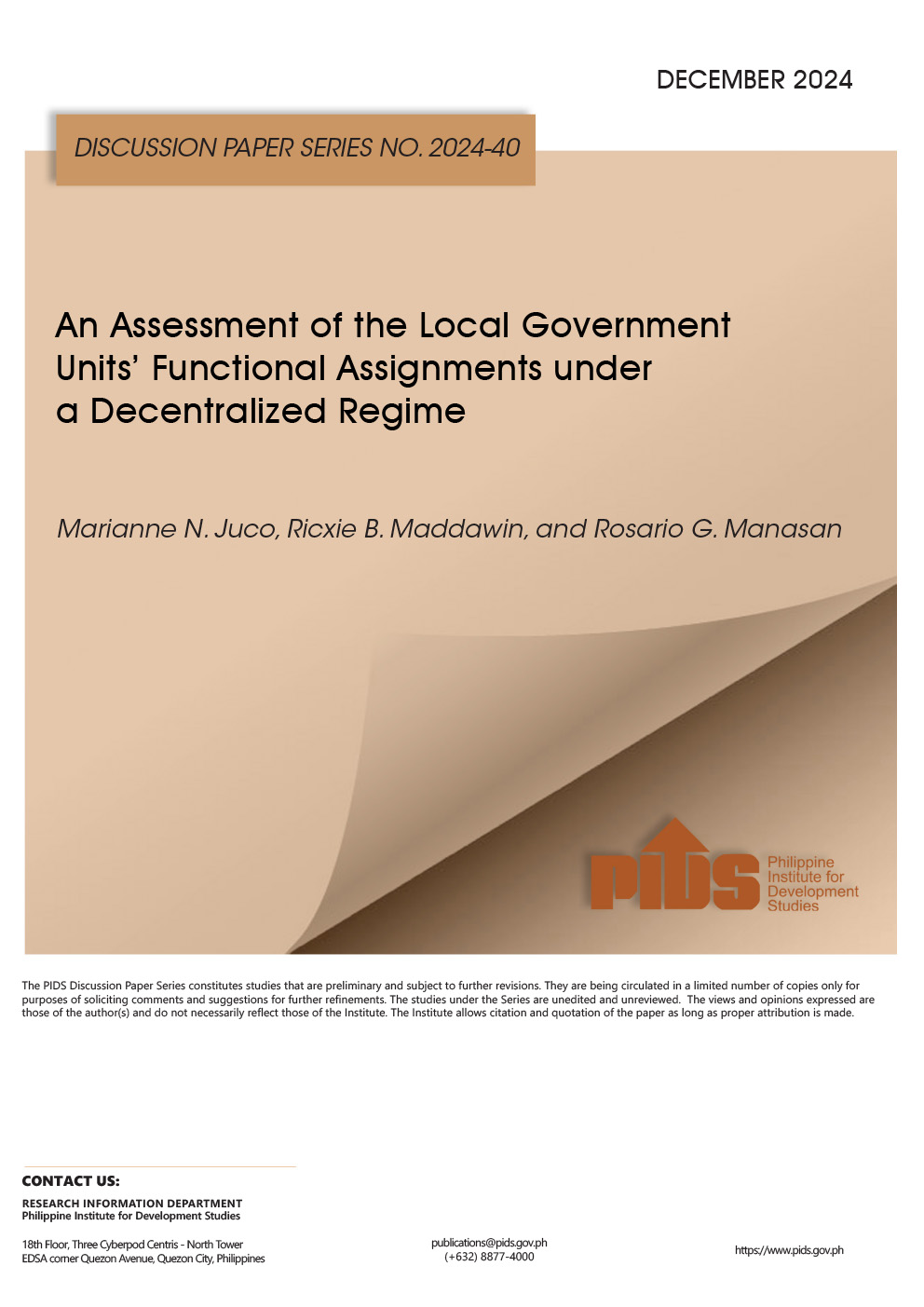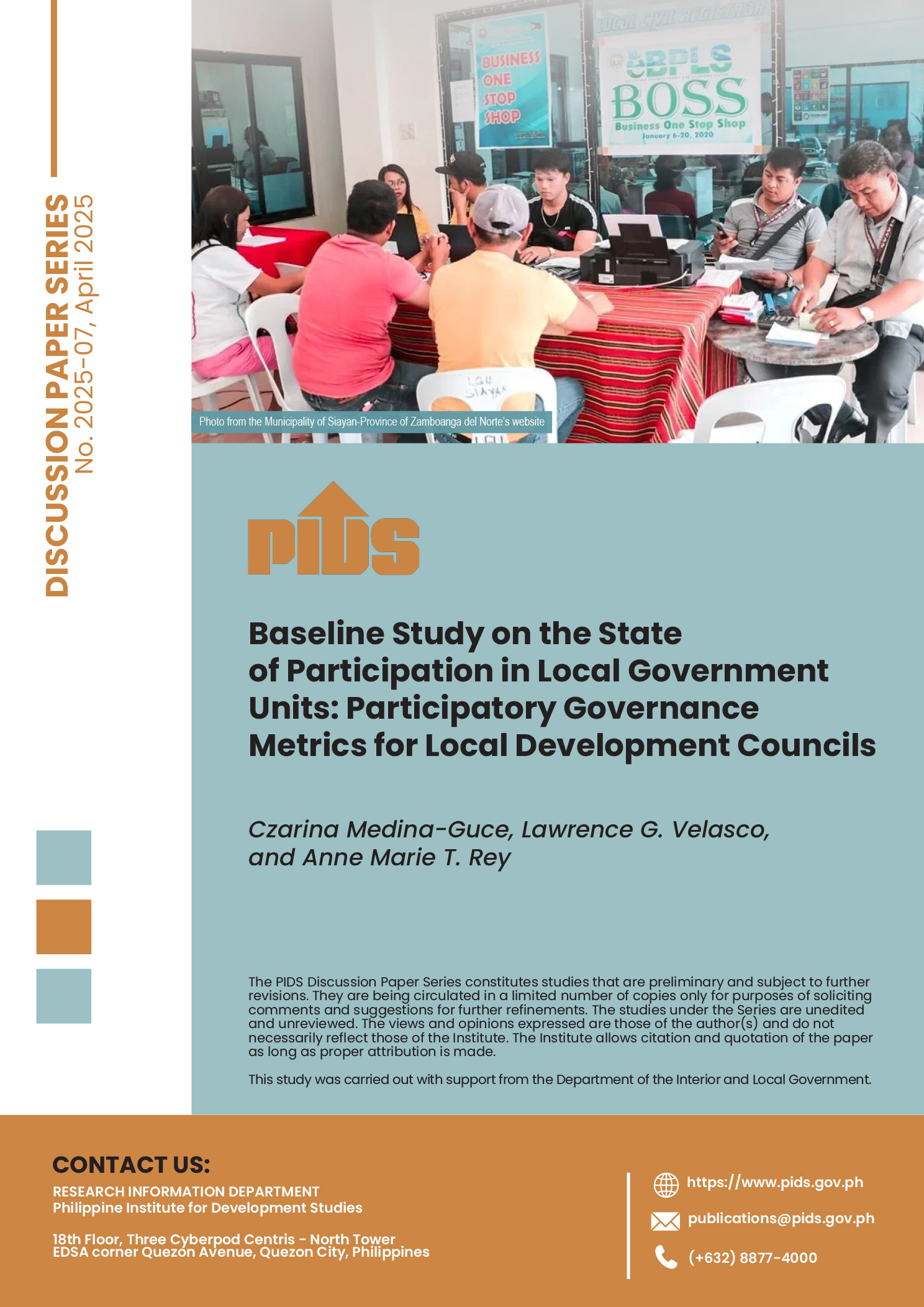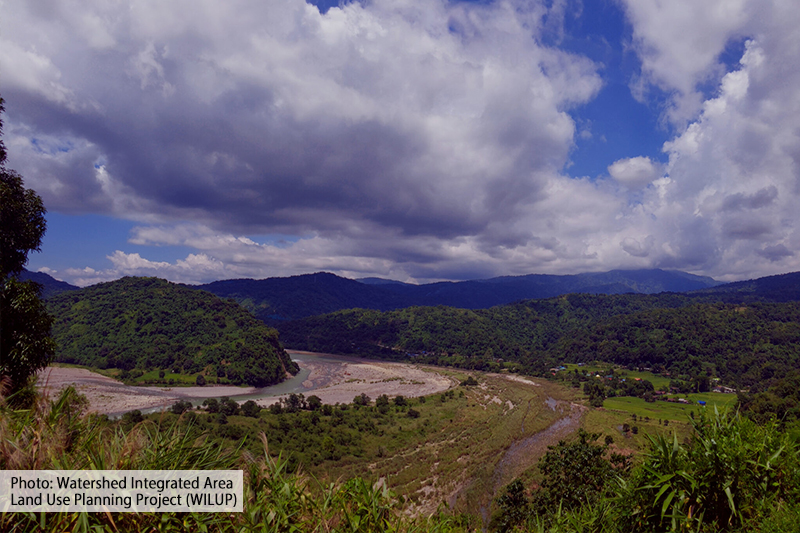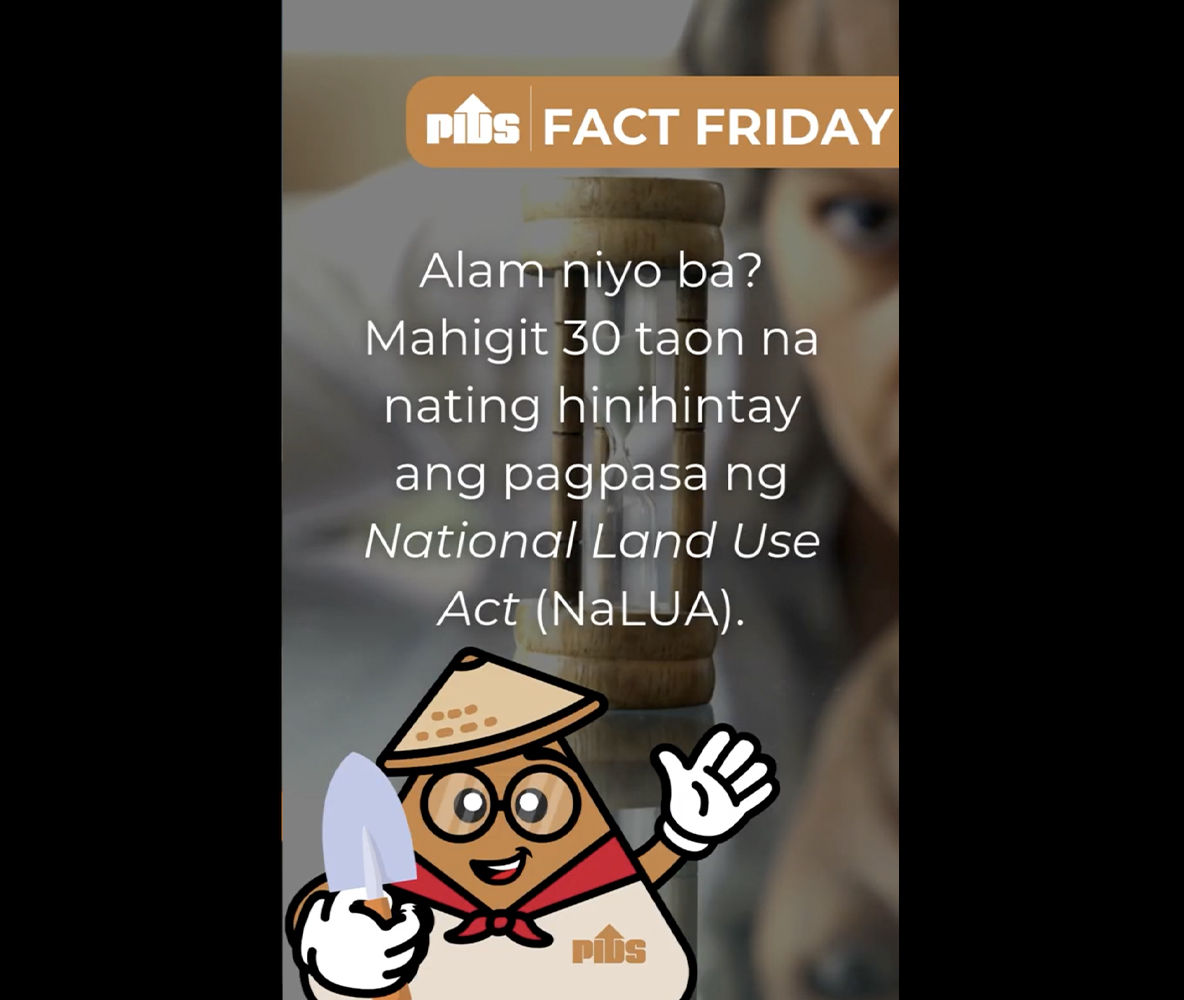
Local government units (LGUs) are crucial partners in enacting and implementing the National Land Use Act (NaLUA). NaLUA’s passage would foster cooperation and address land-use challenges, ultimately benefiting all stakeholders – national and local.
This was emphasized by Philippine Institute for Development Studies (PIDS) Senior Research Fellow Adoracion Navarro who presented findings and recommendations from her study, “The Need for a National Land Use Act in the Philippines”, at a recent Socioeconomic Research Portal for the Philippines (SERP-P) knowledge-sharing forum. The study highlights the importance of comprehensive collaboration and integration among stakeholders to effectively address land use challenges and proposes the enactment of NaLUA.
“LGUs have a crucial role in managing land use, but they often lack the necessary guidance and support to address the complexities of conflicting land uses and overlapping claims. By promoting sustainable land use planning and governance, the NALUA seeks to minimize negative externalities and disamenities, ensuring the long-term ecological balance and socio-economic development of the country,” she explained. The NALUA can provide the framework and standards needed to empower LGUs for effective land use planning and governance.
The author acknowledged existing land use management mechanisms but also revealed a critical gap. “Over half (55 percent) of comprehensive land use plans (CLUPs) are outdated as of July 2023, and four percent of municipalities or cities lack CLUPs altogether. Similarly, 57 percent of provincial development and physical framework plans (PDFPs) are outdated, with 10 percent of provinces missing PDFPs entirely”.
This affects optimal land zoning, land reclassification, and land use conflict resolution at the local government level. It results in some LGUs becoming unresponsive to the demand for shelter, infrastructure, agricultural production, environmental protection, and industrial development.
Furthermore, data between 2015 and 2020 suggests a sub-optimal utilization of land. This means that the way land is being used in the country is not the most effective or beneficial for various purposes. Barren lands increased significantly over the years, while land used for annual crops, perennial crops, and fishponds declined.
The LGUs’ level of capacity and understanding of land use planning will directly impact the success of NaLUA’s implementation, should it be finally enacted. “LGU powers need not be diminished and the NaLUA can, in fact, do the reverse. The presence of sanctions and penalties in the proposed legislation is not meant to disempower LGUs, while the benefits are meant for all stakeholders”. Navarro suggested laying down a proposal for upgrading the technical capacity of LGUs in formulating, updating, and implementing CLUPs and PDFPs.
A transdisciplinary approach is needed to strengthen advocacy for the NaLUA. This approach involves incorporating knowledge and perspectives from various disciplines. “We need other disciplines’ languages so that other people can understand us better and be part of our policy advocacy,” she said.
Navarro concluded that there is an urgent need for a comprehensive national land use governance framework to ensure the sustainable and equitable use of this vital resource. “If the Philippines has a national level legislation on the use of water through the Water Code of 1976 and in the governance of air as a resource through the Clean Air Act of 1999, then why not also for land?”.
Watch the knowledge-sharing forum at https://bit.ly/pidslive032524.

